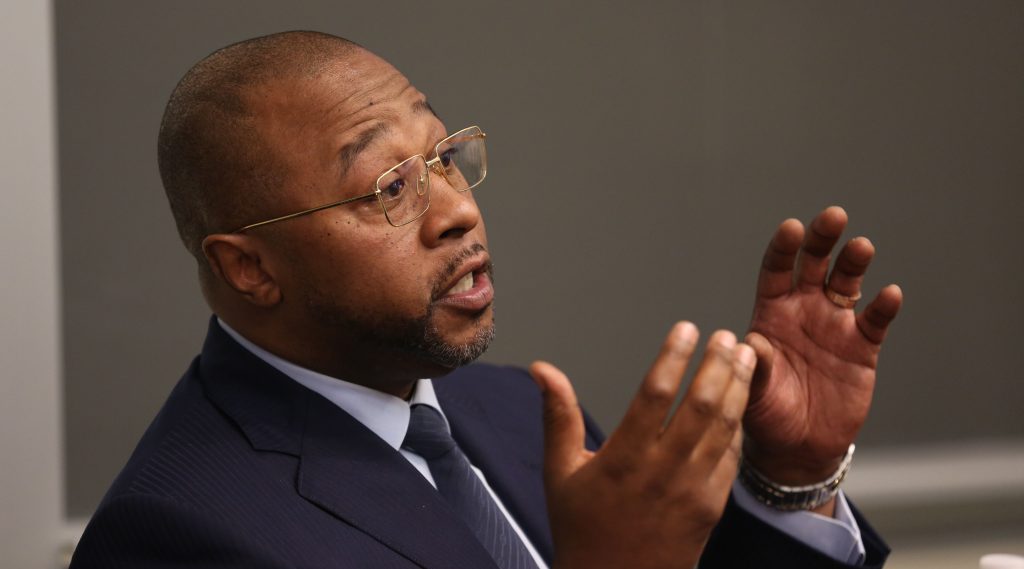Racial injustice at all stages of the US legal system and the ways in which racism and racial bias have contributed to wrongful convictions was the subject of a Rappaport Center for Law and Public Policy panel discussion on September 27. The event was co-sponsored by the BC Law Innocence Program (BCIP) and moderated by Professor Sharon Beckman, director of BCIP.
Panelist Jarrett M. Adams shared that at the age of 17 he was wrongfully convicted for a crime he did not commit and served 10 years until he was exonerated. After his exoneration, Adams went to law school and now practices in the fields of criminal defense and civil rights. He also co-founded a nonprofit, Life After Justice, and today, his work centers around preventing wrongful convictions and supporting exonerees in their transition back to everyday life. Adams emphasized how struggles with diversity impede the truth in criminal cases, leading to more wrongful convictions for Black defendants.
Sam Gross, professor emeritus at University of Michigan Law School and founder of the National Registry of Exonerations, provided quantitative insights through the Registry’s 2022 report, “Race and Wrongful Convictions in the United States.” Gross presented his findings that Black people are far more likely to be convicted and later exonerated for serious crimes than other racial groups. Gross identified racial bias, witness misidentification, and racial profiling as contributing factors for these disparities.
The Honorable Geraldine Hines, Huber Distinguished Visiting Professor at BC Law and former Associate Justice of the Massachusetts Supreme Judicial Court, analyzed race and wrongful convictions through a judicial lens, commenting on the need for judges to preserve legal guardrails. Some of her comments derived from the opinion she wrote in the 2016 case Commonwealth v. Warren.
Justice Hines authored the opinion in the 2016 case Commonwealth v. Warren, which stated “…the finding that black males in Boston are disproportionately and repeatedly targeted for FIO (field interrogation and observation) encounters suggests a reason for flight totally unrelated to consciousness of guilt. Such an individual, when approached by the police, might just as easily be motivated by the desire to avoid the recurring indignity of being racially profiled as by the desire to hide criminal activity.”
Justice Hines strongly encouraged the use of data to provide empirical information when attempting to advocate for clients and educate the courts. In the Warren case, the court referenced a Boston Police Department report denoting that the “targets of FIO reports were disproportionately male, young, and Black.” She also urged Judges to educate themselves on how wrongful convictions occur and uphold the integrity of the judicial process.
Jeffery Robinson, Rappaport Distinguished Visiting Professor and CEO of The Who We Are Project, an anti-racism nonprofit, concluded the panel with a broader call-to-action tackling racial discrimination in the US legal system. For Robinson, institutions exist in a culture of white supremacy and oppression; the onus is on the community at large to be aware, vigilant, and courageous in the wake of racial injustice.
Photograph by Reba Saldanha


